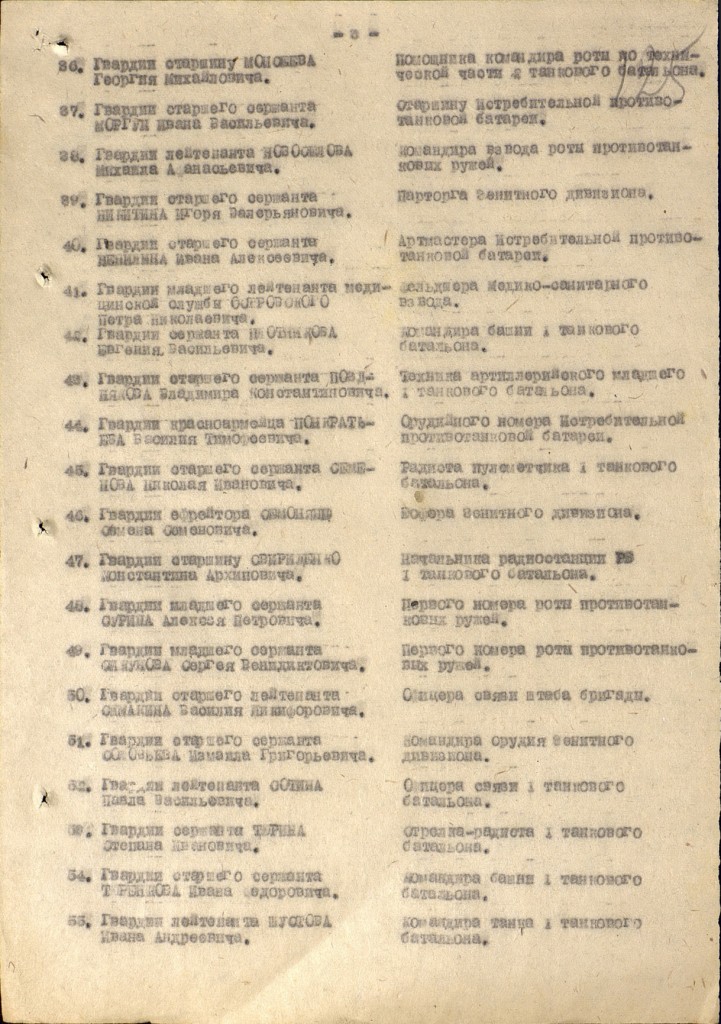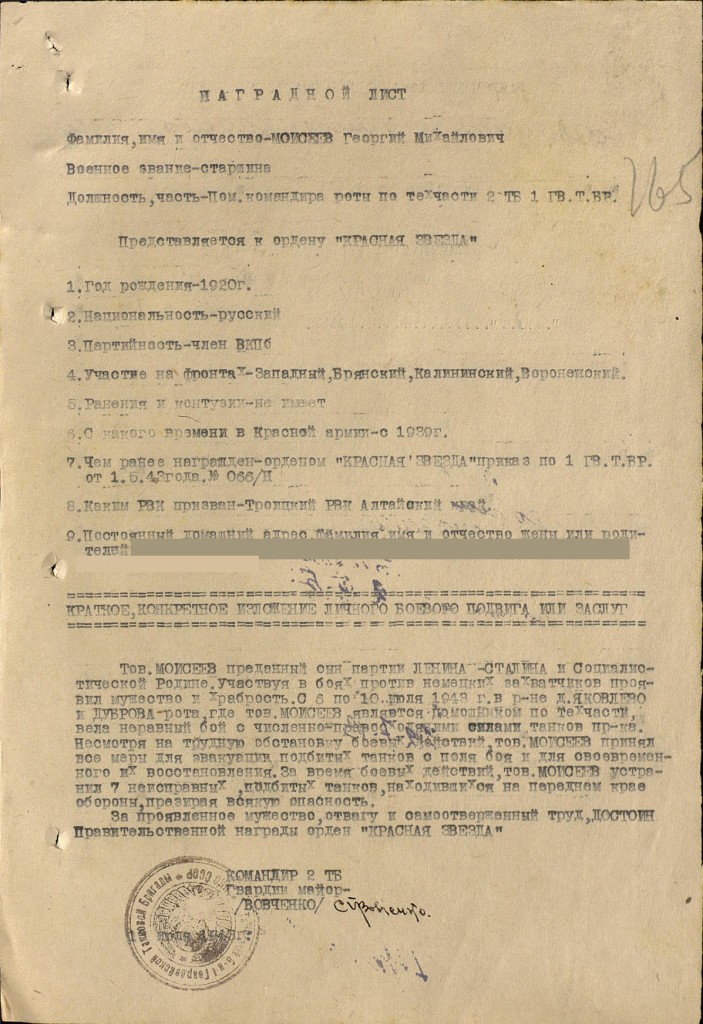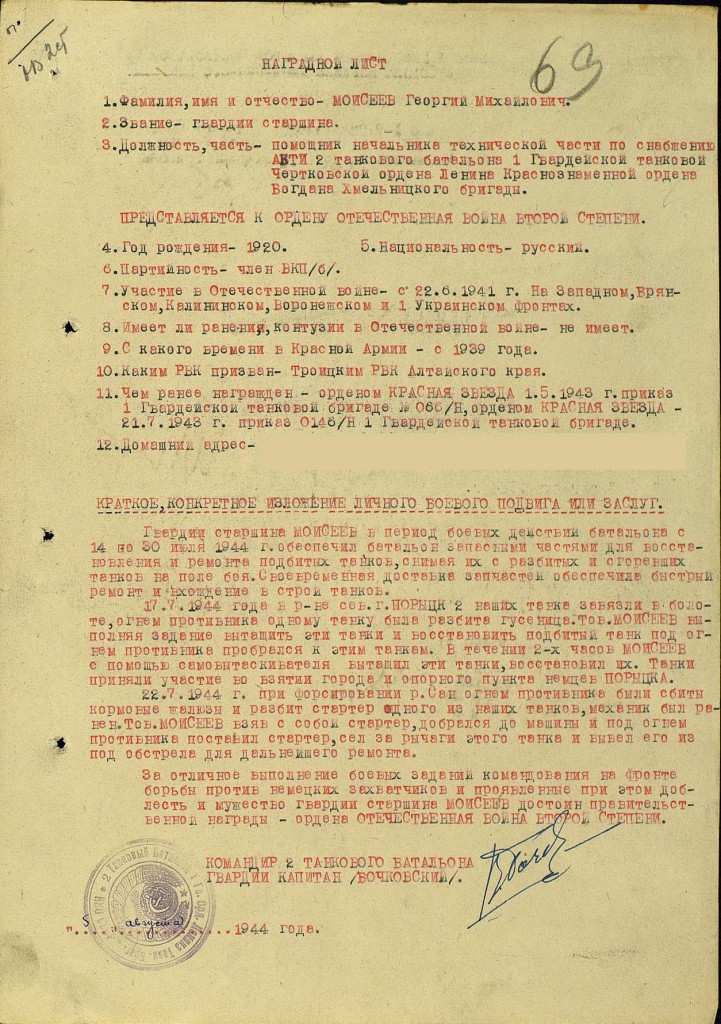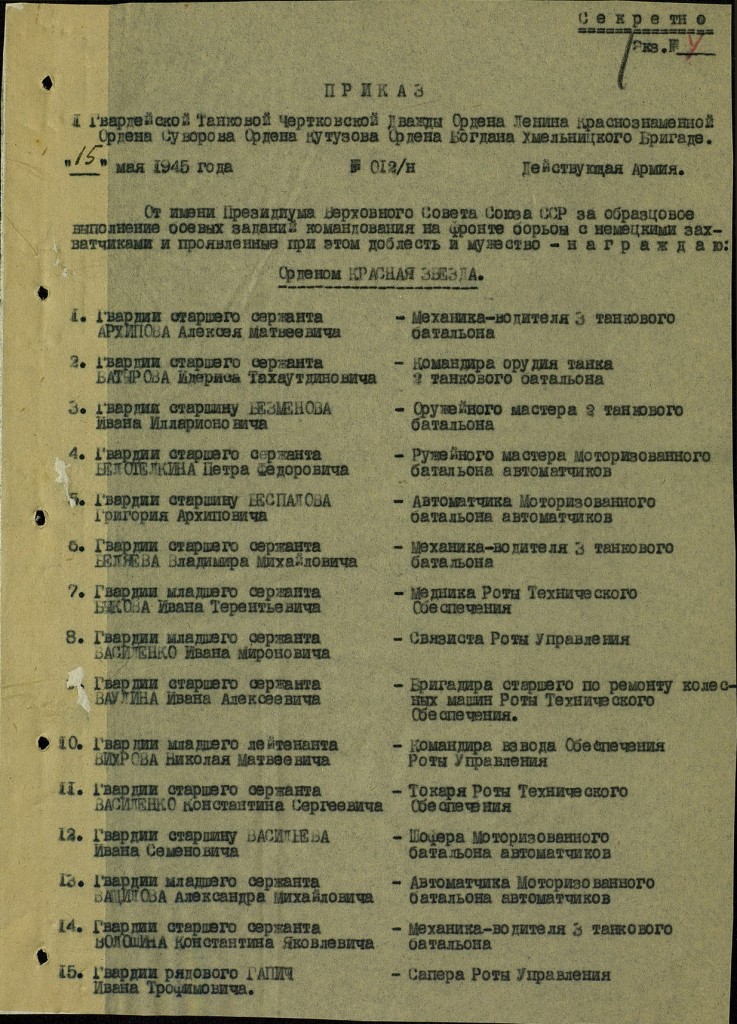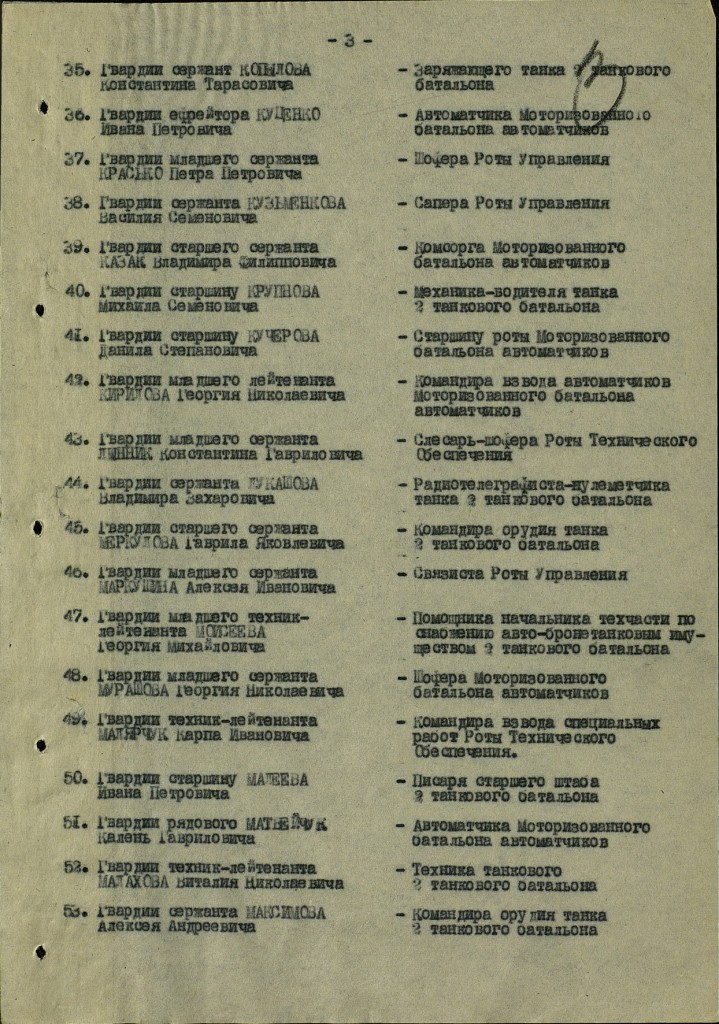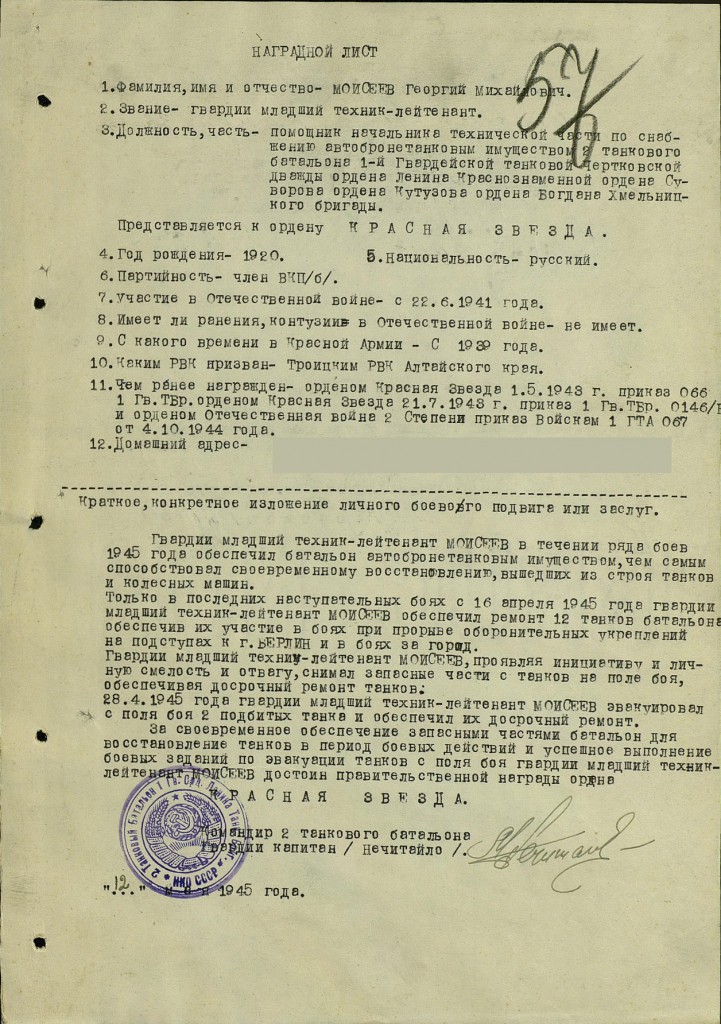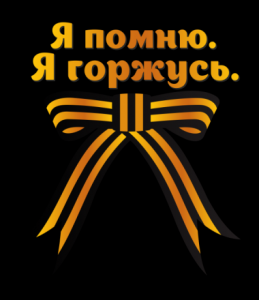
This article, first published on the 22nd of June 2015 at 04:00 in the morning, is a living, often-updated, tribute to my grand-uncle, who fought that war from the very first days and until the victorious end. Moreover, it’s a tribute to all 27 million Soviet citizens, who perished in that war, and tens of millions more, who suffered hardships and losses to bring about the Victory. It is therefore, when the Western “leaders” refused to attend the Victory parade in Moscow on the 9th of May 2015, they effectively did a dance of glee on the bones of those 27 million perished people, and were perceived by all Russians (and here I use “Russian” in a broad sense, encompassing all 200+ nationalities that live in the Russian Federation, all the normal people of the former USSR, and all the foreigners, who sympathise with Russia) as modern-time Western heirs to Nazism. I previously translated an article, written by the President of the RF, V.V.Putin, describing his family’s struggle in the blockaded Leningrad. In this article here, I will touch upon my own family’s history.

In 2015 the Russian Ministry of Defence launched a new web-site, consolidating, digitalising and geo-tagging all the newly-declassified information about those Soviet citizens, who fought (and died) in WWII, in the Great Patriotic War. The site is aptly called People’s Memory. A good English language article about it can be found at Russia Beyond the Headlines:
The new People’s Memory website, launched by the Russian Defence Ministry, is the largest of its kind in the world. The site, dedicated to those who served on the Eastern Front in World War II, allows users to locate the resting places of soldiers whose burial sites have remained unknown to their relatives until now, as well as acquire knowledge about their military careers.
 Knowing my grand-uncle’s name, family name and patronymic, as well as his year of birth, I managed to locate him, and what I learnt, confirmed those disjointed memories I had of him from my childhood. I vaguely remember his face, and more his blazer, covered in orders and medals. He used to visit us in Moscow between 23rd of February and the 10th of May, celebrating Victory Day and meeting with the ever-thinning numbers of his brothers-in-arms. From the stories, re-told by my mother, I knew that he fought in the War as part of a tank division. That he was at one point surrounded, cut off from the main force for several months. That for some time he was presumed dead, until their company managed to reunite with the main force. That at another point he received a heavy concussion, but returned into the ranks. And that he finished the War in Berlin. But not much more. People’s Memory allowed me to go deeper and see his path and the deeds that lead to the awards.
Knowing my grand-uncle’s name, family name and patronymic, as well as his year of birth, I managed to locate him, and what I learnt, confirmed those disjointed memories I had of him from my childhood. I vaguely remember his face, and more his blazer, covered in orders and medals. He used to visit us in Moscow between 23rd of February and the 10th of May, celebrating Victory Day and meeting with the ever-thinning numbers of his brothers-in-arms. From the stories, re-told by my mother, I knew that he fought in the War as part of a tank division. That he was at one point surrounded, cut off from the main force for several months. That for some time he was presumed dead, until their company managed to reunite with the main force. That at another point he received a heavy concussion, but returned into the ranks. And that he finished the War in Berlin. But not much more. People’s Memory allowed me to go deeper and see his path and the deeds that lead to the awards.
There is memorial public initiative in Russia, The Immortal Legion, where people add photos and what information they remember of their grandfathers and great-grandfathers, lest it is forgotten. I have enlisted Grand-Uncle Georji into the legion, publishing what I found here at the authentic Immortal Legion’s official site.
Moiseev Georgij Mihajlovich, born on November 11th, 1920 in Altai Krai in Siberia. At the age of 18, he was conscripted to the regular service as a tank mechanic in October of 1939. The regular service lasted at that time for 2 years, and in 1941 he would have been demobilised. But so came the War. He first became demobilised from the active army 23.11.1946. This date, over a year after the end of WWII in the European direction, makes me think if grand-uncle Georgij might have been deployed to China to liberate it from the Japanese occupation. However, I do not have any documentary evidence for that, besides this strangely late date.
My grand-uncle’s given name – Georgij – is in itself fateful. It is connotative of Victory and courage. It is found in Saint George the Victorious (rus.: Georgji Pobedonosec), and in the St.George Ribbon (rus: Georgievskaja lentochka). The latter is the symbol of courage and self-sacrifice, established by Catherine the Great, and carrying the colours symbolising the fire and smoke of a battle.

Poeple’s Memory now (2020) has 3 cards with record about Georgij Moiseev: first, second and third. The records come from different divisions, but are about the same person. One of the records had a photo my grand-uncle as he was right after the war – the three Red Star medals, the Order of the Great Patriotic War II Class and the medal “For the Capture of Berlin” are seen on his uniform. In the same 2020 additions I can read that he had medals “For the Defence of Moscow”, “For the Liberation of Warsaw”, “For the Capture of Berlin”, and “For the Defeat of Germany in the Great Patriotic War of 1941-1945”.
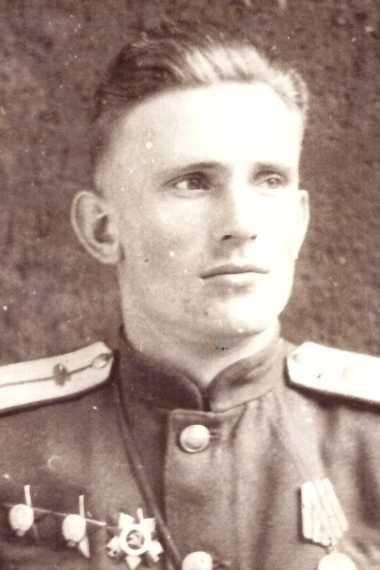
According to the People’s Memory, his first battle happened on the 8th of November 1941 in the Orlov-Brjansk operation as part of the 1st Guard’s Tank Brigade. After that he participated in the Battle of Moscow (and was awarded medal “For the Defence of Moscow”), Battle of Kursk, Proskurovsk-Chernovick operation and liberation of Ukraine, Lvov–Sandomierz Offensive, Vistula–Oder Offensive, and the Battle of Berlin. Judging from the early history, leading to the formation of the 1st Guard’s Tank Brigade, my grand-uncle may have been one of the survivors of either the 15th or the 20th tank divisions, which largely perished during the first months of war and operated as infantry divisions.
The map can be seen below, as geo-tagged by People’s Memory project. The map is showing the path and the points where medals were awarded. An older map, published in 2016, can be seen here.
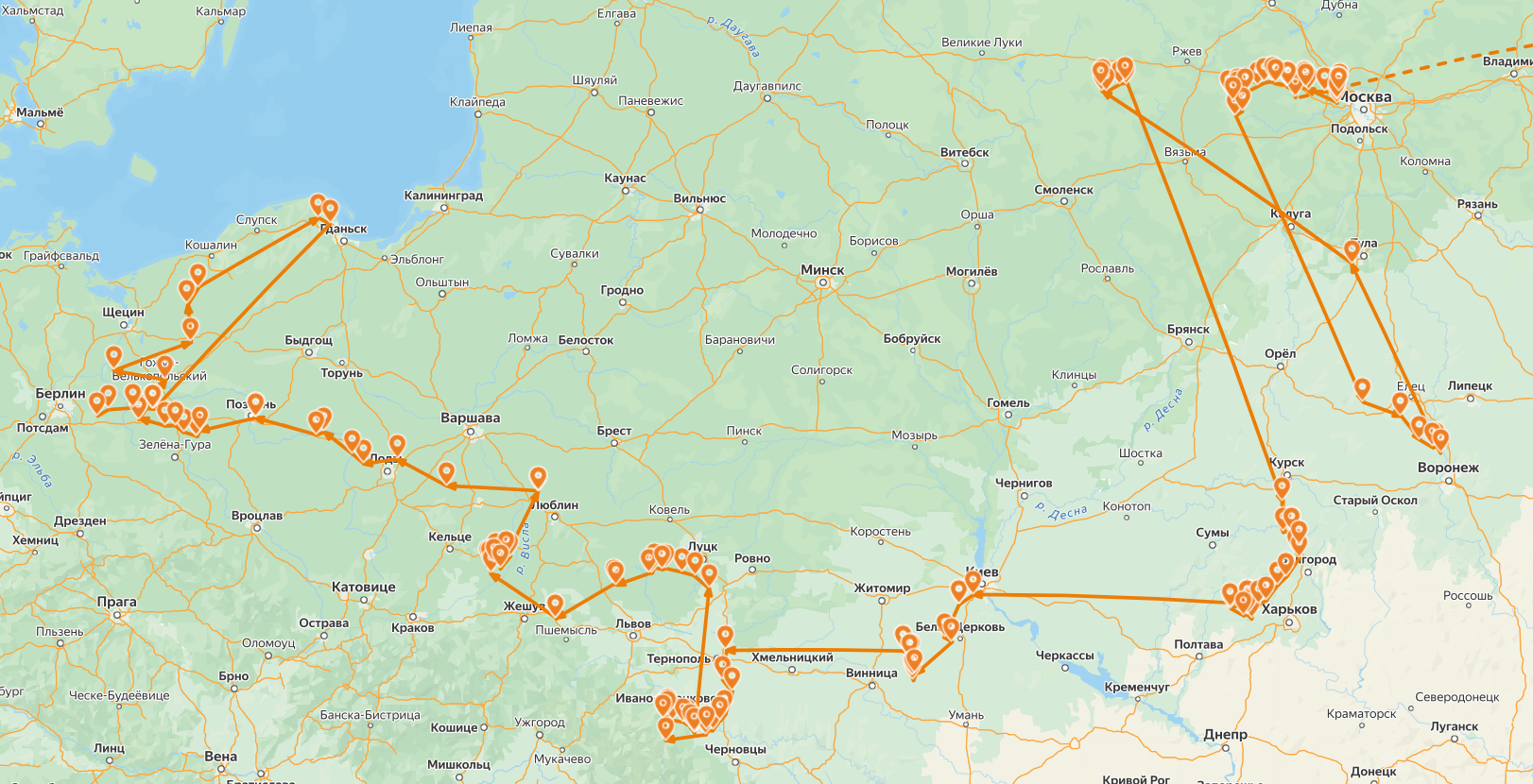
Grand-uncle Georgij was awarded 3 Orders of the Red Star and 2 Orders of the Great Patriotic War II Class. People’s Memory allows one to view scans of the documents pertaining the awards, and the section detailing the act of heroism especially bring that time back to life. Read on for details about each award.
 The first Order of Red Star was awarded on the 1st of May 1943. The details about this order are not present in the People’s Memory database (yet?), but the information about it can be gleaned from the subsequent orders, as all preceding awards are always listed. Update! Though the details and scans are still absent, People’s Memory now lists the order document as being located in cabinet 58, box 16 of the Central Archive (ЦАМО).
The first Order of Red Star was awarded on the 1st of May 1943. The details about this order are not present in the People’s Memory database (yet?), but the information about it can be gleaned from the subsequent orders, as all preceding awards are always listed. Update! Though the details and scans are still absent, People’s Memory now lists the order document as being located in cabinet 58, box 16 of the Central Archive (ЦАМО).
 The second Order of Red Star was awarded on the 22nd of July 1943. Here are the award list carrying grand-uncle Georgij’s name and the personal award sheet, pertaining to it:
The second Order of Red Star was awarded on the 22nd of July 1943. Here are the award list carrying grand-uncle Georgij’s name and the personal award sheet, pertaining to it:
The section detailing personal battle merit, says:
Comrade Moiseev is a devoted son of the Party of Lenin-Stalin and of the Socialist Motherland. While participating in battles against the German usurpers he displayed bravery and courage. From the 6th until the 10th of July 1943, in the area of villages Jakovlevo and Dubrova, the brigade, where comrade Moiseev is a technical assistant, was conducting an unequal battle with quantitatively superior numbers of the enemy’s tanks. Despite the difficult conditions of the battle, comrade Moiseev took all possible measures to evacuate disabled tanks from the battlefield to perform timely repairs. During the course of the battle, comrade Moiseev, disregarding any danger, evacuated 7 disabled tanks that were located at the front edge of the defence.
For the dispayed courage, bravery and self-sacrificing work, he is worthy of the Government award of the “Red Star” order.Commander of the 2nd tank battalion,
Guard Major Vovchenko
 Next he was awarded the Order of the Great Patriotic War II Class. It happened on the 4th of October 1944, and was awarded for the battles near Poryck (today: Pavlovka in Western Ukraine). Here are the first page of the order, the award list carrying grand-uncle Georgij’s name, and the personal award sheet, pertaining to it:
Next he was awarded the Order of the Great Patriotic War II Class. It happened on the 4th of October 1944, and was awarded for the battles near Poryck (today: Pavlovka in Western Ukraine). Here are the first page of the order, the award list carrying grand-uncle Georgij’s name, and the personal award sheet, pertaining to it:
The section detailing personal battle merit, says:
Guard Petty Officer Moiseev, during the battalion’s battles in the period from the 14th until the 30th of July 1944 provided the battalion with spare parts for reconstruction and repairs of the damaged tanks, by dismantling them from disabled or burnt tanks on the battlefield. Timely delivery of spare parts ensured quick repair of the tanks and their return into service.
On the 17th of July 1944 in the northern part of town Poryck, 2 of our tanks were stuck in a marsh. One of the tank’s tracks were damaged by enemy fire. Comrade Moiseev, executing the order to retrieve those tanks and to repair the damaged one, crept to the tanks under enemy fire. After 2 hours, Moiseev – while using a manual winch – pulled those tanks out and repaired them. The tanks took part in the capture of the German stronghold, the town of Poryck.
On the 22nd of July 1944, during the crossing of river San, the enemy fire destroyed side blinders and a starter of one of our tanks, and the mechanic was wounded. Comrade Moiseev, taking a starter with him, managed to reach the machine and installed the starter under enemy fire. Then taking controls of the tank, he steered it from under enemy fire for further repairs.
For the excellent execution of the commander’s orders at the front of the fight against the German usurpers, and for display of courage and bravery, Guard Petty Officer Moiseev is worthy of the Government award – Order of the Great Patriotic War II degree.
Commander of the 2nd tank battalion,
Guards Captain Bochkovskij.
 The third Order of Red Star was awarded on the 15th of May 1945 for the Battle of Berlin. Here are the first page of the order, the award list carrying grand-uncle Georgij’s name, and the personal award sheet, pertaining to it:
The third Order of Red Star was awarded on the 15th of May 1945 for the Battle of Berlin. Here are the first page of the order, the award list carrying grand-uncle Georgij’s name, and the personal award sheet, pertaining to it:
The section detailing personal battle merit, says:
Guard Lieutenant Engineer Moiseev has during a number of battles of 1945 provided the battalion with armour inventory, thus facilitating timely repairs of the disabled tanks and wheel-going vehicles.
Only during the latest assault battles from the 16th of April 1945, Guard Lieutenant Engineer Moiseev, provided repairs to 12 tanks of the battalion, ensuring their participation in the battles leading to the break-though of the fortifications and the approaches to Berlin and in the battles for the city.
Guard Lieutenant Engineer Moiseev, displaying initiative and personal courage and bravery, dismounted spare parts from the tanks on the battlefield, ensuring early repair of the tanks.
On the 28th of April 1945, Guard Lieutenant Engineer Moiseev evacuated from the battlefield 2 disabled tanks and conducted early repairs.
For the timely provisioning of the battalion with spare parts during battles and for successful execution of the battle objectives encompassing evacuation of the tanks from the battlefield, Guard Lieutenant Engineer Moiseev is worthy of the Government award Order of the Red Star
Commander of the 2nd tank battalion,
Guard Captain Nechtajlo
 From the decorations on his photo, taken in 1999, I can see that he was awarded with another Order of the Great Patriotic War II Class. This event must have taken place on the final days of the War, after the Order of Red Star award above. The documents pertaining this last award are not (yet?) published…
From the decorations on his photo, taken in 1999, I can see that he was awarded with another Order of the Great Patriotic War II Class. This event must have taken place on the final days of the War, after the Order of Red Star award above. The documents pertaining this last award are not (yet?) published…
I am adding this paragraph in 2020, and is something that I haven’t told before, in part because I did not want to affront the present-day Poles. But seeing the down-turn after the down-turn that Poland is taking, I feel this bit of history needs to be told and knowm. This testimonial is something that is brought about by the recounting of the first train from Berlin.
My grand-uncle was one of those returning from Berlin after the War. I do not know if he was on that first train – he talked about the train ride back, but my memories are very patchy, as I was just a small kid back then when he last talked to me. I wish I listened more attentively… One thing that he told about and that stuck in memory – probably because it was re-told by my grandmother and my mother – was the passage though Poland on the way back from Berlin, where he told he saw how many of the Soviet soldiers were back-stabbed on the platforms during the stop-overs: some women would come over, seemingly hugging the soldiers… When his train was leaving, he saw several bodies that were lying on the platform.
Grand-uncle Georgij not only returned from the War, but lived a long and worthy life. But the shadow of War was always over him – my mother told me about him saying how he often had nightmares from those gruesome 4 years… He died in 2000.
And as post-scriptum, his sister – my grandmother, Elizaveta – also lived all her life, touched by the War. She was a civilian, working long 16 hour shifts, having little to eat. And ironically, the worst curse came from what was supposed to be help. The American Lend-Lease – a “help” that USSR paid through its nose for – brought a lot of dated food rations, which US Army could no longer use. These rations were distributed among civilians, and one such box of Spam ended up with my grandmother, giving her a severe poisoning. Her liver was damaged for life, and she lived since then on strict diets, being limited to what she could and could not eat…


